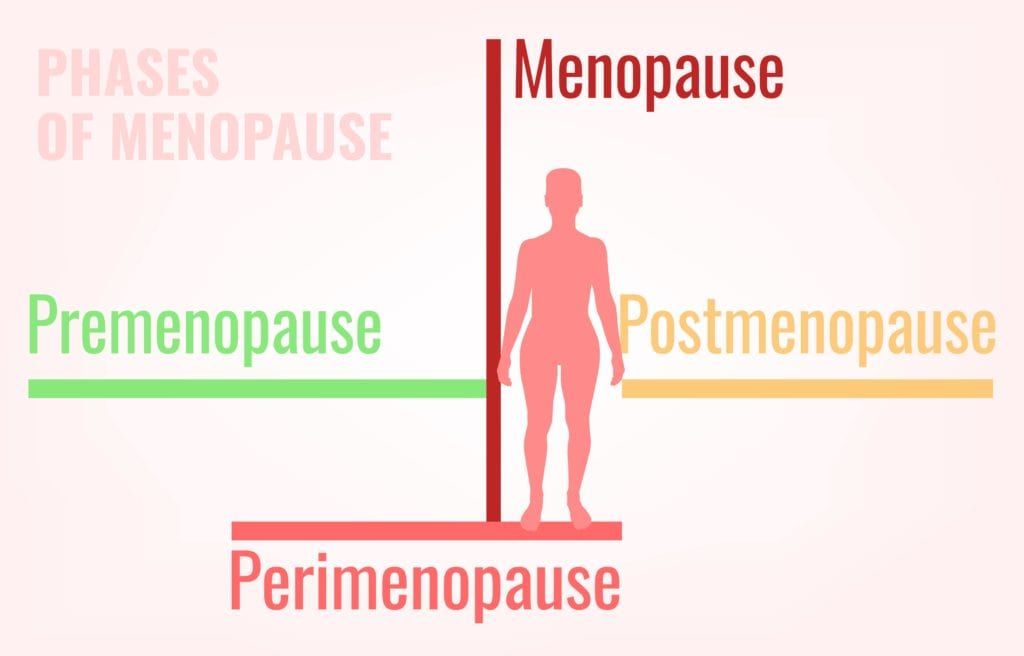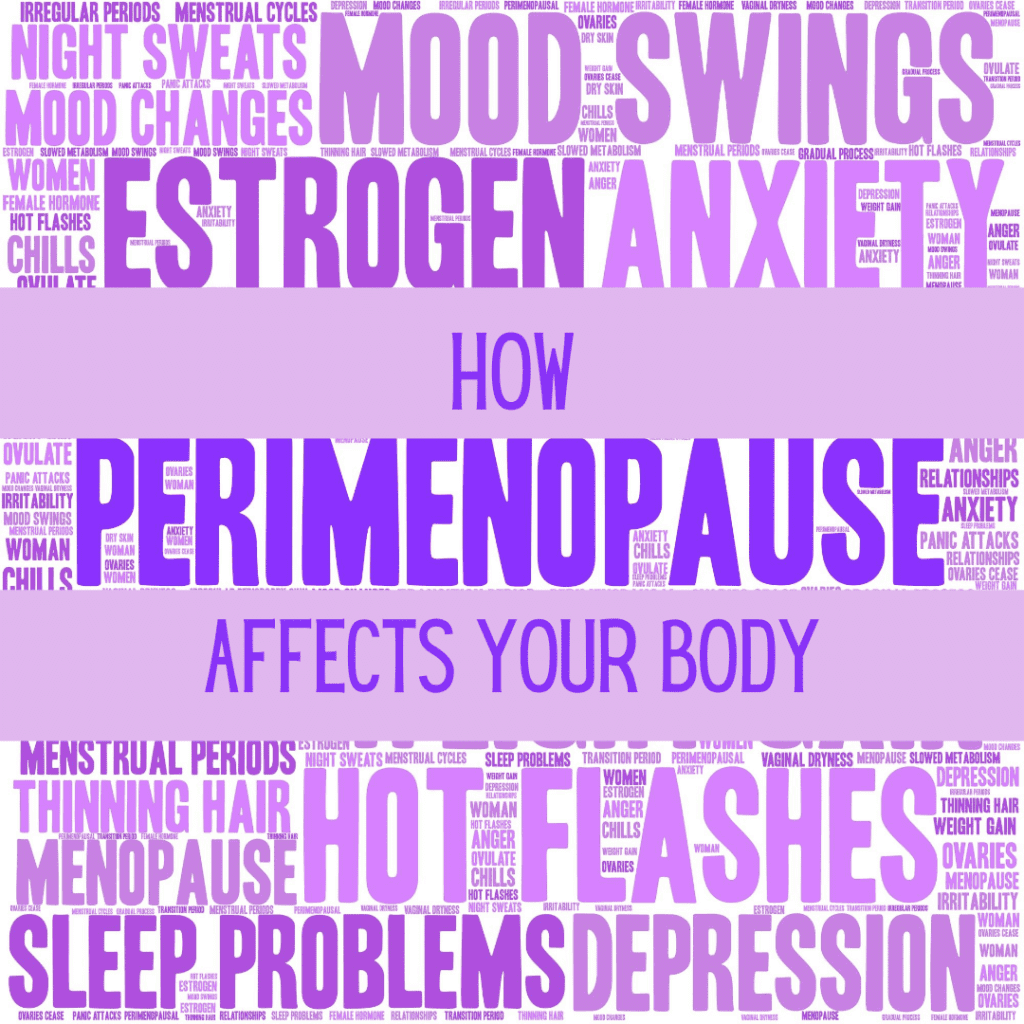There are many different things that can affect your period and cause it to change such as diet, exercise, weight, age, and birth control just to name a few. Although some changes can indicate a possible issue, others changes are natural. In fact one natural occurrence that changes your period is known as perimenopause.

Perimenopause is a change in hormone levels that occurs just before menopause. Most women will undergo perimenopause in their mid to late 40s, however some women may experience it earlier. Generally speaking, you can expect perimenopause symptoms to last around 4 years, then your period will stop completely. After your period has stopped completely (no bleeding or spotting), your body will transition from perimenopause to menopause over the course of 12 months.
During the 4 years of perimenopause, hormonal changes can alter the frequency, symptoms, and regularity of your period. Here are some ways that you can expect perimenopause to affect your period and body:
Irregularity
Even if you have always had regular periods, perimenopause can suddenly cause this to change. This is because perimenopause interrupts the normal hormonal rhythm. Instead of progesterone and estrogen levels rising and falling in a consistent pattern, hormonal changes become erratic. The result is irregular periods that can occur more or less frequently than usual. This can mean that you may experience two periods back to back in one month or that you could completely skip a period one month.

Sleep Problems
Unfortunately, perimenopause can cause hot flashes that often occur at night. Both hot flashes and night sweats are the main causes of sleep problems during perimenopause, however some women also experience problems sleeping without hot flashes or night sweats. In some cases, sleep problems can cause mood swings and irritability, and can increase the risk of depression.
Bleeding Changes
Perimenopause also changes the amount you bleed during your period. Both an abnormally heavy or light flow are indicative of perimenopause. Some women will experience heavy bleeding that leaks through pads, while others may hardly experience any bleeding at all.
Sexual Changes
As a result of lower estrogen levels, sexual intercourse may become painful due to less elasticity and natural lubrication. You may also notice changes in your sexual desire and arousal.
Overall Health Changes
Decreasing estrogen levels can also cause changes elsewhere in the body that can affect your overall health. For starters, lower estrogen is associated with osteoporosis since your body loses bone faster than it can replace it. Lower estrogen levels can also alter your blood cholesterol levels. Specifically, your bad cholesterol (LDL) levels can rise, while your good cholesterol (HDL) levels can decrease.
Although perimenopause is a normal part of aging, if you are experiencing symptoms that are interfering with your life or well-being you should schedule an appointment to discuss this with your gynecologist. In some cases, symptoms of perimenopause may be due to another cause that only your gynecologist can diagnose. In other cases, there may be treatments your gynecologist can recommend to make perimenopause easier on you.

Dr. Geoffrey Zann is a Certified Robotic Da Vinci Surgeon, Board-certified by the American College of Obstetricians and Gynecologists, and a Diplomat of the American Board Obstetrics of Gynecology. He has been a member of the American Society for Colposcopy and Cervical Pathology, American Association of Gynecologic Laparoscopists, and the Hugh R. K. Barber Obstetric and Gynecologic Society.
